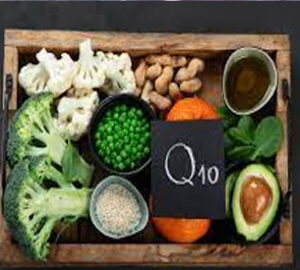
Nutrahara Blog
Nutrahara Blog
Sign Up For Our Wellness Newsletter!
Unlocking the Secrets of a Healthy Pregnancy Diet
Unlocking the Secrets of a Healthy Pregnancy Diet: Expert Tips and Testimonials for Moms-to-Be
I. Introduction
In the journey of womanhood, the miraculous phase of pregnancy stands as a testament to the remarkable capabilities of the female body. Beyond its awe-inspiring nature, pregnancy also underscores the paramount importance of nutrition, not only for the mother but also for the developing life within. While mainstream discussions often revolve around basic dietary guidelines, delving deeper unveils a narrative often overlooked: the symbiotic relationship between maternal nutrition and the lifelong health trajectory of the offspring.
A. Importance of Nutrition During Pregnancy
1. Nourishing Both Mother and Baby
Traditionally, the emphasis on pregnancy nutrition centers on fetal development. However, a holistic perspective recognizes that optimal nutrition during gestation serves a dual purpose: nurturing the mother’s well-being alongside facilitating the growth and development of the unborn child.
2. Setting the Foundation for Healthy Development
Emerging research sheds light on the concept of “nutritional programming,” suggesting that the maternal diet during pregnancy can influence the offspring’s susceptibility to chronic diseases later in life. This paradigm shift underscores the significance of prenatal nutrition as not merely a nine-month investment but rather as a cornerstone for lifelong health outcomes.
Amidst the cacophony of dietary advice, this article aims to navigate the nuanced terrain of pregnancy nutrition, offering insights beyond the conventional wisdom. By empowering women with a deeper understanding of the intricate interplay between nutrition, maternal health, and fetal development, we embark on a journey towards fostering resilience and vitality across generations.
II. Understanding Healthy Pregnancy Nutrition
Navigating the maze of pregnancy nutrition can be daunting, but a foundational understanding of essential nutrients lays the groundwork for informed decision-making. Here, we explore the key nutrients crucial for maternal and fetal health, illuminating the path towards a nourished pregnancy journey.
A. Key Nutrients for Pregnant Women
During pregnancy, the body undergoes a myriad of physiological changes, demanding an increased intake of specific nutrients to support maternal health and fetal development. Among the pivotal nutrients are:
– Protein: Vital for the growth and repair of tissues, protein serves as the building blocks for fetal development and supports maternal physiological changes.
– Iron: Essential for oxygen transport and the formation of red blood cells, adequate iron intake mitigates the risk of maternal anemia and promotes optimal fetal growth.
– Folic Acid: Critical for neural tube development, folic acid supplementation reduces the risk of neural tube defects and supports overall fetal neurodevelopment.
– Iodine: Facilitating thyroid function and brain development, iodine plays a crucial role in ensuring healthy cognitive development in the fetus.
– Choline: Often overlooked, choline is integral for brain development and may contribute to lifelong cognitive function.
B. Importance of Hydration
In the midst of nutrient-centric discussions, the role of hydration often takes a backseat. However, adequate hydration is paramount during pregnancy, supporting maternal blood volume expansion, nutrient transport, and waste elimination. Moreover, staying hydrated alleviates common discomforts such as constipation and urinary tract infections.
To delve deeper into the specifics of a healthy pregnancy diet, refer to Eat Healthy During Pregnancy: Quick Tips, which offers practical insights and actionable advice for expectant mothers.
Armed with knowledge about these essential nutrients and the significance of hydration, expectant mothers can embark on their pregnancy journey with confidence, prioritizing the nutritional needs of both themselves and their growing baby.
III. Crafting a Healthy Pregnancy Diet
Embarking on the journey of pregnancy necessitates not just consuming more food but making mindful choices to ensure optimal nourishment for both mother and baby. Crafting a healthy pregnancy diet involves more than just calorie counting; it entails assembling a nutrient-rich plate that caters to the unique needs of pregnancy.
A. Building a Balanced Plate
Incorporating a diverse array of nutrient-dense foods lays the foundation for a healthy pregnancy diet. Here’s how to construct a balanced plate:
– Incorporating Whole Foods: Prioritize whole grains, lean proteins, fruits, and vegetables to maximize nutrient intake and minimize empty calories.
– Balancing Macronutrients: Strive for a balanced distribution of macronutrients, including carbohydrates, proteins, and healthy fats, to support maternal energy needs and fetal growth.
B. Managing Pregnancy Cravings
Pregnancy often brings about cravings, which can challenge the resolve to maintain a nutritious diet. Here are strategies for managing pregnancy cravings:
– Healthy Alternatives: Satisfy cravings with healthier options, such as swapping sugary snacks for fruit or opting for whole-grain alternatives to refined carbohydrates.
– Moderation: Indulge in cravings in moderation, incorporating them into a well-balanced diet rather than allowing them to dominate dietary choices.
To delve deeper into the intricacies of crafting a healthy pregnancy diet, refer to Pregnancy nutrition: Foods to avoid during pregnancy, which provides comprehensive guidance on nutrition during pregnancy, including foods to embrace and avoid.
By adhering to these principles of balanced nutrition and mindful indulgence, expectant mothers can navigate the complexities of pregnancy cravings while nurturing both themselves and their developing baby.
IV. Meal Planning for Pregnancy
Effective meal planning is a cornerstone of maintaining a nutritious diet throughout pregnancy, ensuring consistent access to essential nutrients while accommodating the dynamic needs of expectant mothers. Here, we explore strategies for designing a nutrient-rich meal plan tailored to the unique requirements of pregnancy.
A. Designing a Nutrient-Rich Meal Plan
Crafting a meal plan that prioritizes nutrient density is essential for meeting the increased demands of pregnancy. Consider the following guidelines:
– Daily Caloric Needs: Calculate personalized caloric requirements based on pre-pregnancy weight, activity level, and stage of pregnancy to ensure adequate energy intake.
– Sample Meal Ideas: Curate a repertoire of nutritious meal options, incorporating a variety of food groups to optimize nutrient intake. Aim for a balance of carbohydrates, proteins, healthy fats, vitamins, and minerals in each meal.
B. Preparing Healthy Snacks
Snacking plays a crucial role in sustaining energy levels and managing hunger throughout the day. Here are tips for preparing healthy snacks during pregnancy:
– Quick and Nutritious Options: Stock up on convenient, nutrient-rich snacks such as nuts, seeds, yogurt, and fruit to curb cravings and prevent excessive hunger.
– Portable Snacks for Busy Days: Opt for portable snacks that can be easily carried and enjoyed on-the-go, ensuring access to nourishing options even during hectic schedules.
By implementing thoughtful meal planning techniques and prioritizing nutrient-rich snack options, expectant mothers can proactively support their nutritional needs and promote optimal health for both themselves and their growing baby.
V. Navigating Dietary Restrictions and Concerns
While pregnancy is often hailed as a time of joy and anticipation, it can also present challenges, particularly for women navigating dietary restrictions or grappling with specific health concerns. Here, we explore strategies for addressing common dietary restrictions and concerns during pregnancy.
A. Addressing Common Dietary Restrictions
Pregnancy may necessitate adjustments for individuals with dietary restrictions or special dietary needs. Consider the following approaches:
– Food Allergies and Intolerances: Identify and avoid potential allergens or intolerant foods, seeking alternative sources of essential nutrients to maintain a balanced diet.
– Vegetarian or Vegan Diets: Ensure adequate intake of protein, iron, calcium, vitamin B12, and omega-3 fatty acids through plant-based sources or supplementation, as needed.
B. Managing Gestational Diabetes
Gestational diabetes poses unique challenges during pregnancy, requiring careful management to mitigate adverse outcomes. Here are strategies for navigating gestational diabetes:
– Balanced Meal Planning: Adopt a meal plan that distributes carbohydrate intake evenly throughout the day, prioritizing complex carbohydrates and fiber-rich foods to promote stable blood sugar levels.
– Regular Monitoring: Monitor blood glucose levels regularly, following healthcare provider recommendations for frequency and timing of testing to maintain optimal glycemic control.
To access comprehensive guidance on nutrition during pregnancy, including tips for managing dietary restrictions and promoting optimal health, refer to Nutrition During Pregnancy, which offers evidence-based insights and practical recommendations for expectant mothers.
By proactively addressing dietary restrictions and concerns, pregnant women can navigate the complexities of pregnancy nutrition with confidence, prioritizing both maternal health and fetal well-being.
VI. Tips for Eating Healthy During Pregnancy
Maintaining a healthy diet during pregnancy is essential for both maternal well-being and fetal development. Here, we offer practical tips to empower expectant mothers in making nutritious food choices throughout this transformative journey.
A. Listening to Your Body
Tuning into your body’s signals and honoring its needs is paramount during pregnancy. Consider the following strategies:
– Tuning into Hunger and Fullness Cues: Eat when hungry and stop when satisfied, paying attention to hunger and fullness cues to avoid overeating or undereating.
– Practicing Mindful Eating: Engage in mindful eating practices, savoring each bite, and paying attention to taste, texture, and satisfaction to cultivate a deeper connection with food.
B. Incorporating Prenatal Supplements
Supplementation can complement a healthy diet during pregnancy, ensuring adequate intake of essential nutrients. Here’s how to incorporate prenatal supplements effectively:
– Ensuring Adequate Nutrient Intake: Choose high-quality prenatal supplements recommended by healthcare providers to fill potential nutrient gaps and support maternal and fetal health.
– Consulting with a Healthcare Provider: Seek guidance from a healthcare provider or registered dietitian to determine appropriate supplement dosages and address individual nutritional needs.
By prioritizing mindful eating and incorporating prenatal supplements as needed, expectant mothers can nourish their bodies and support optimal health outcomes for both themselves and their growing baby.
VII. Real Life Testimonials
Real-life testimonials offer invaluable insights and inspiration, showcasing the diverse experiences and perspectives of expectant mothers on their journey towards maintaining a healthy diet during pregnancy. Here, we share stories of triumph, challenges, and valuable lessons learned from real women navigating the complexities of pregnancy nutrition.
A. Sharing Stories of Successful Pregnancy Nutrition
Discover firsthand accounts of expectant mothers who have embraced healthy eating habits during pregnancy:
– Overcoming Challenges: Hear from women who have overcome obstacles such as cravings, dietary restrictions, or cultural barriers to prioritize nutritious food choices for themselves and their baby.
– Achieving Positive Outcomes: Learn how adopting a balanced diet enriched with essential nutrients has contributed to positive pregnancy outcomes, including healthy weight gain, optimal fetal development, and enhanced maternal well-being.
B. Gaining Perspective from Diverse Experiences
Explore the varied experiences and perspectives of expectant mothers from different backgrounds and walks of life:
– Cultural Influences: Gain insight into how cultural traditions and dietary practices shape pregnancy nutrition, highlighting the importance of cultural sensitivity and individualized guidance.
– Support Systems: Discover the role of support networks, including partners, family members, and healthcare providers, in facilitating healthy eating habits and promoting maternal health during pregnancy.
By sharing real-life testimonials, we aim to foster a sense of community, solidarity, and empowerment among expectant mothers, inspiring them to prioritize nutrition and embrace the transformative journey of pregnancy with confidence and resilience.
VIII. Conclusion
As we conclude this exploration into the realm of pregnancy nutrition, it becomes evident that nourishing both body and soul is paramount for expectant mothers embarking on this transformative journey. From understanding the vital role of essential nutrients to navigating dietary restrictions and cravings, each aspect of pregnancy nutrition contributes to the holistic well-being of both mother and baby.
By prioritizing a balanced diet rich in whole foods, embracing mindful eating practices, and seeking support from healthcare providers and loved ones, expectant mothers can lay the foundation for a healthy pregnancy and a thriving future for their little one. Real-life testimonials serve as a beacon of hope and inspiration, reminding us that every woman’s journey is unique and deserving of recognition.
As we celebrate the resilience, strength, and inherent beauty of pregnancy, let us continue to champion the importance of nutrition, self-care, and empowerment for women at every stage of life. Together, we can create a world where every expectant mother feels supported, empowered, and equipped to nourish herself and her growing baby, paving the way for a brighter and healthier future for generations to come.






